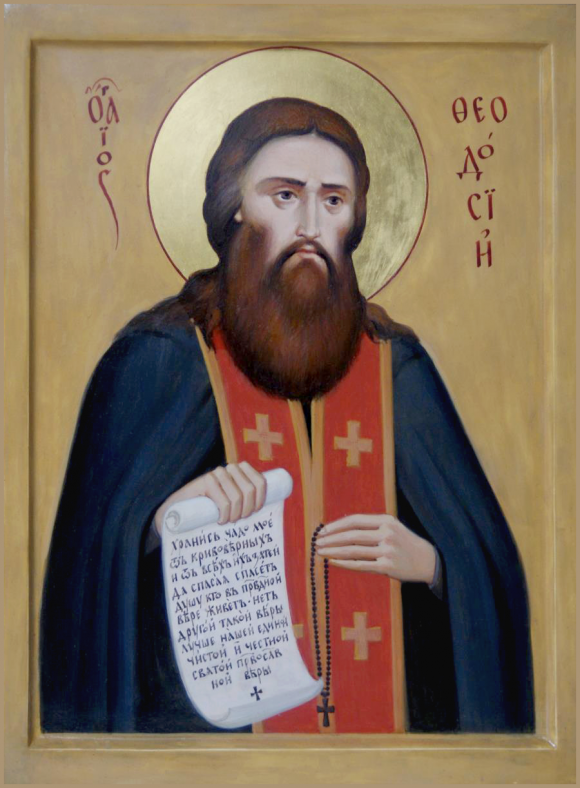Our venerable father, Theodosius, abbot of the monastery of the caves at Kiev, called the initiator of the common life in ancient Rus.
Theodosius lived two centuries before St. Francis, in Kievan Russia, where the Gospel had only recently been preached for the first time. Like Francis, Theodosius was filled with compassion for the poor and longing for a life of simplicity. He, too, experienced violent opposition from his parents, and eventually took refuge with the hermit, Anthony, in a cave near Kiev.
In time-honored scenario, their life of solitude soon attracted so many followers that by 1062, there were built monastic buildings above ground to house the large community now headed by Theodosius. Adding his own vision to the monastic precepts he learned from Anthony, he tempered Greek and Syrian severity with Slavic compassion. His rule stressed obedience, mutual love, meekness, and simplicity. Above all, in his dealings with monks, peasants, and princes, he reflected the kenosis, or self-emptying, of Christ. Chronicles of the time recount how Theodosius participated in all the labors of the monastery, and was often mistaken by visitors for the cook or the gardener. The respect he earned from princes and nobles prompted a flow of wealth into the monastery, which Theodosius used to feed, clothe, and nurse the poor and imprisoned. By the time he died in 1074, Russia had an important and thriving center of monastic life less than 100 years after its conversion. (NS)
More on St Theodosius may be read here.
